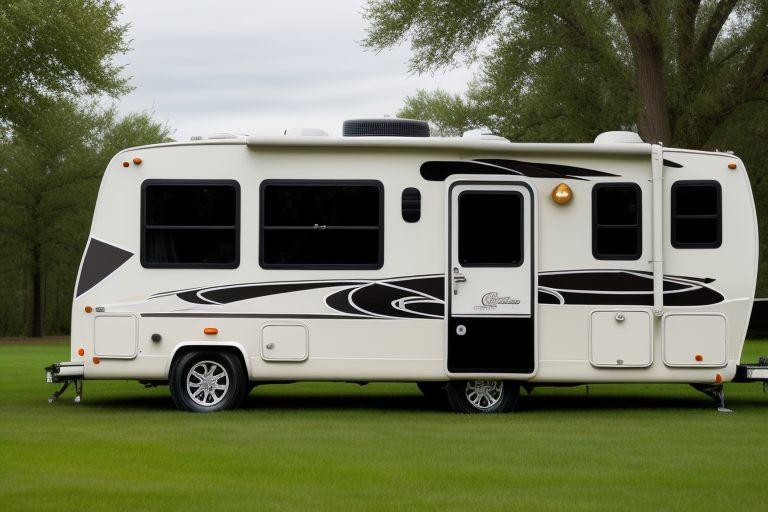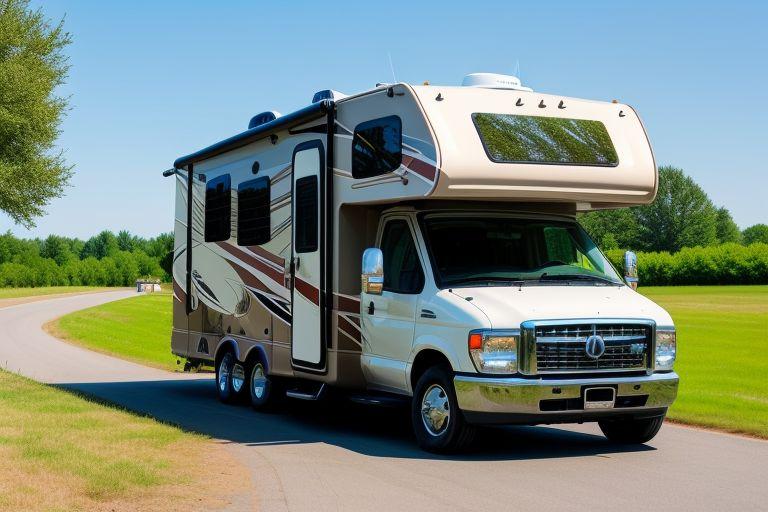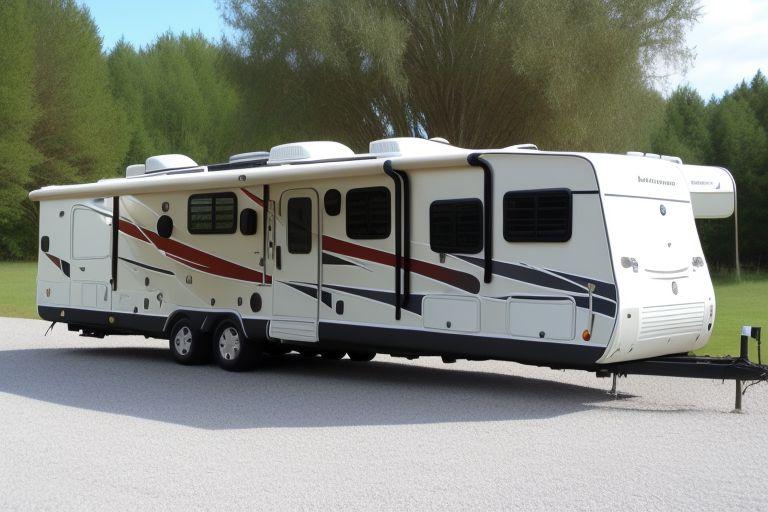
When preparing for RV transport, selecting the right equipment is crucial to ensure safety and efficiency.
Tow Vehicle: The vehicle must have adequate towing capacity to handle the size and weight of the RV. It’s essential that the vehicle's specifications exceed or meet the requirements of the RV to prevent mechanical strain and ensure safe travel.
Hitch System: Depending on your RV type, you may choose between receiver hitches, fifth-wheel hitches, or gooseneck hitches. Each hitch type serves different sizes and types of RVs, affecting the stability and maneuverability of the vehicle.
Wiring Harness: This is essential for connecting the RV’s electrical systems to the tow vehicle, ensuring that lights and brakes function properly during transit. This setup is critical for legal compliance and safety on the road.

Towing Vehicles and Their Specifications
Choosing the appropriate tow vehicle is foundational in the process of RV shipping. The vehicle must have a towing capacity that can comfortably handle the total weight of the RV, which includes all gear and supplies loaded for the trip.
- Appropriate Tow Vehicle Selection: The tow vehicle’s capacity should match or exceed the Gross Vehicle Weight Rating (GVWR) of the RV to ensure it can safely tow the load. This prevents transmission strain and reduces the risk of accidents.
- Engine and Transmission Requirements: Powerful engines with robust transmission capabilities are recommended for towing RVs. Diesel engines, for instance, are favored for their torque and longevity, especially when towing heavier loads like those of larger travel trailers or fifth-wheel setups.
Understanding these specifications is critical not just for safety and compliance, but also for the efficiency and longevity of your vehicle during hauling.
Types of Hitches and Their Uses
Hitches are pivotal in securing the RV to your vehicle, and selecting the right type is key to safe RV transport.
- Receiver Hitch: Best suited for smaller travel trailers, receiver hitches are mounted directly to the frame of the vehicle and can handle moderate weights.
- Fifth-Wheel Hitch: Ideal for larger trailers, the fifth-wheel hitch offers enhanced stability by distributing the trailer’s weight more evenly across the vehicle. It is a preferred choice for extensive hauling services due to its reliability in maintaining control of large loads.
- Gooseneck Hitch: Used primarily for oversized or very heavy RVs, the gooseneck hitch provides superior maneuverability and weight distribution. It attaches to the bed of a pickup truck, allowing for efficient handling of substantial RV shipping methods.
Each hitch type offers specific benefits and is chosen based on the trailer's weight, size, and the tow vehicle’s capabilities, ensuring optimal performance during shifting.

Electrical Systems and Connectivity
- Wiring Kits: Having an appropriate wiring kit is essential for safe hauling. Campervan owners need a reliable kit that can handle their recreational vehicle’s lighting and braking systems. This ensures that brake lights, turn signals, and emergency flashers function properly, making travel trailers visible on the road and helping prevent accidents.
- Brake Controllers: These devices are necessary for safely managing the RV's brakes from the tow vehicle. Brake controllers synchronize the braking between the RV and the tow vehicle, ensuring smooth stops and minimizing the risk of accidents. They are especially critical for larger travel trailers and heavy equipment to ensure safe towing.
- Backup Cameras: For owners who seek improved visibility while towing, backup cameras provide crucial assistance. They help drivers maneuver more safely, especially when reversing into tight spots, preventing collisions and damage to cargo doors or other vehicles.
Safety Equipment for Towing
- Safety Chains: Safety chains are critical for preventing the RV from detaching from the hitch ball during RV shipping. Attach chains to the tow vehicle in a crisscross pattern under the trailer tongue to catch the trailer if the ball hitch fails.
- Extended Mirrors: Towing recreational vehicles requires improved rear visibility. Extended mirrors help RV owners see around larger trailers and safely change lanes or reverse.
- Tire Pressure Monitoring Systems: Proper tire pressure is crucial for handling the heavy loads of RVs and heavy equipment. Monitoring systems give real-time tire data, helping drivers avoid blowouts or underinflated tires.
Performance Enhancers and Stability Tools
- Weight Distribution Systems: Weight distribution systems help balance loads for smoother towing. They distribute the trailer’s weight across the tow vehicle’s axles and the trailer’s wheels, ensuring better handling for campervan owners towing recreational vehicles.
- Sway Control Bars: These minimize trailer sway during transit, especially with heavy equipment or travel trailers. They are crucial for maintaining stability and preventing hazardous oscillations at high speeds.
- Shock Absorbers: Shock absorbers improve ride quality under tow conditions by reducing road vibration. This makes shipping more comfortable and prevents damage to sensitive cargo, including cargo doors.
Using this equipment helps owners maintain compliance with safety standards, protect their investment, and feel more confident during hauling. Partnering with a reputable tow away services provider ensures everything is properly set up and covered under the company's insurance policy for added peace of mind.

Legal Requirements and Compliance
- Permits and Documentation: Legal requirements for hauling vary based on your travel route. RV owners should research the necessary permits in each state they will pass through. Some states may require overweight or oversized permits, especially for motorhome shipping or large tow bar setups. Keep vehicle registration, insurance documents, and emergency contacts accessible to ensure smooth passage.
- Inspection Checklist: Routine inspections ensure compliance with safety regulations. Check tires for proper inflation and tread, and ensure all lights work correctly. Confirm that the tow bar and hitch are securely fastened and that cargo doors are locked. Test the braking system and tow vehicle connections, and double-check load security. Regular inspections prevent accidents and reduce legal hassles during transport.
Preparing Your For Shifting
Secure Internal Items: Before motorhome shipping, secure or remove all loose interior items to prevent damage during transit. Lock down drawers, cupboards, and doors. Use blankets or bubble wrap to cushion delicate items. A thorough inspection helps RV owners ensure their possessions arrive intact.
External Preparations: Check all exterior lights to verify proper functioning. Lock all cargo doors and apply covers to protect delicate components like mirrors and antennas. Ensure the tow bar is tightly fastened and any awnings or slide-outs are retracted. Regular maintenance is vital for smooth and safe hauling.

Conclusion
A successful shifting experience hinges on thorough preparation and the right equipment. From ensuring legal compliance to securing interior and exterior components, owners should prioritize safety measures to avoid damage and delays. Choosing the appropriate tow bar and securing permits are crucial steps for motorhome shipping.
Visit us for professional hauling services. Their expertise ensures that your vehicle is handled with the utmost care and precision, giving you peace of mind on the road.






 Share on Facebook
Share on Facebook Share on LinkedIn
Share on LinkedIn Share on Twitter
Share on Twitter




 Google
Google  Instagram
Instagram  Trustpilot
Trustpilot 



